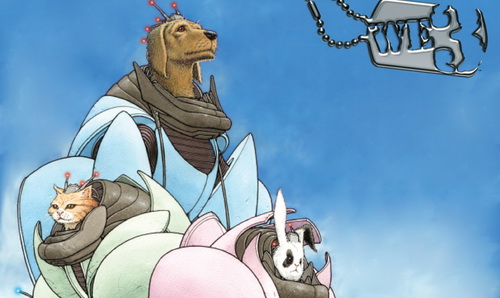ISBN: 0450579875
See also: SF Reviews ;
Read with Eclectic Circus
In the year 2525, there are women… sorry, about that interruption from Cleopatra 2525, it was really out of place, considering that this book isn’t even set in 2525, but in the year 2054, when historians could travel back in time to really study their subjects. Kivrin is one such historian. But she doesn’t want to travel to the C20th, where most historians are sent, she wants to be the first to travel back to the Medieval period. And she succeeds in her aim, but something isn’t quite right. No one can ever be entirely certain as to where or when a historian will end up. A certain amount of slippage always occurs. But in Kivrin’s case her tech falls ill and so her fate is even more uncertain.
Waiting for her in 2054 is Mr. Dunworthy, her tutor, a man who never wanted her to travel back so far. There was plague and robbers and cut-throats and almost uncountable ways to die back then. But the the Medieval department at Oxford decide to send her anyway. Without what Mr Dunworthy considers as enough tests.
I really enjoyed this book. It is one you want to keep on reading, not addictively so, I didn’t stay up half the night because I needed to finish just one more chapter, but I did read it in chunks rather than flitting in for a chapter or two. At first the historical part was the more interesting to me, I wanted to find out how Kivrin was getting on in C14th England, but I was soon just as entertained by the future story, with the flu that threatens Oxford and the resulting quarantine. Of course having the two diseases in different times also allows the reader to see certain parallels between the two societies. The bureaucracy of the future against the ignorance of the past. Neither comes out as perfect but neither is vilified. Both make mistakes, just in different ways.
I also really liked the characters. Kivrin was a tad on the annoying side in her “I know all the dangers but want to go” but she was still fun to read about. And Mr Dunworthy with his constant worries about her. The characters from the C14th were more supporting characters than main ones, but they were still all individuals and it was easy to imagine back stories and histories for them.
The one thing I did find that hit a wrong note was the way Oxford in the future actually seemed quite old-fashioned. With talk of trunk calls and spectacles, and sisters in the hospitals. Plus the lack of mobile phones really dates it. Still those are minor quibbles that can easily be ignored.



I liked this one a lot. I've read probably a half-dozen of her books, and this one's the best. "Lincoln's Dreams" runs second.